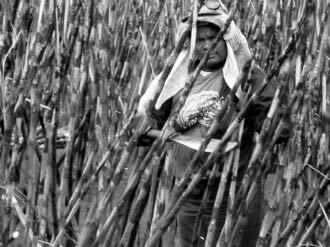The term boia-fria can have several meanings that vary according to the approach. People who receive this name live or have lived in the countryside, they almost always have few years of study and do not have professional qualifications.
Many of these people are illiterate or semi-literate who are subjected to work in the field in diverse cultures, almost always in harvest periods, generally in low working conditions and salary. The term boia-fria refers to an individual who performs work in the rural area without obtaining employment contracts.
The expression boia-fria comes from the way they eat, as they leave for work at dawn and already take their lunchboxes, as there is no way to heat them, they eat cold food.
The term boia-fria was widespread in the center-south of the country, when seasonal workers were called in to work on crops, these generally lived, and still live, in peripheral areas of the municipalities and the middlemen are responsible for the recruitment.
The boia-fria goes to work between four and five in the morning, when the truck passes by to transport them to the plantation, the transport driver performs the negotiation, as to the amount paid for the work, as each individual earns for what they produce, that is, the value is the result of the quantity of tons or arrobas harvested.
The workload varies between ten and twelve hours a day and only thirty minutes for lunch and this, as mentioned previously, it is consumed cold, in the late afternoon the workers are taken back home and the next day they repeat the same routine.

During the off-season, workers are out of work and seek work in other regions, thus they live migrating from one region to another. The flow of these workers is between the states of São Paulo, Paraná, Minas Gerais, Goiás, Mato Grosso and Mato Grosso do Sul, working especially in the harvest of sugarcane, cotton, coffee and Orange.
The boia-fria goes through many problems due to the degrading working conditions; workers, in order to obtain greater gains, are subjected to immense physical effort, many even die as a result. According to some physiologists, cutting sugarcane requires a physical availability equal to that of a top athlete, but the worker does not have such preparation.
Many reports are made in this sense and through them many results have already been achieved. Because alcohol is on the rise, there are hundreds of mills and the work linked to this sector is large, so many companies have offered improvements in working conditions, such as a formal contract, good quality food, adequate clothing and equipment. safety.
Eduardo de Freitas
Graduated in Geography
